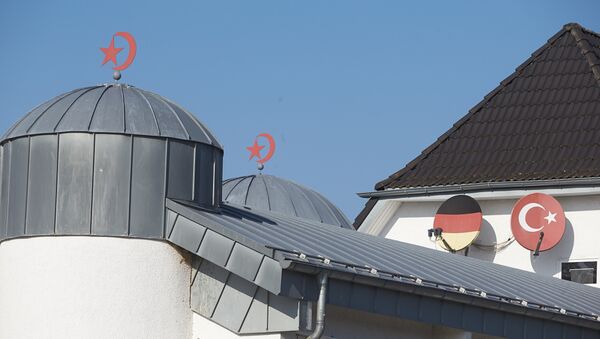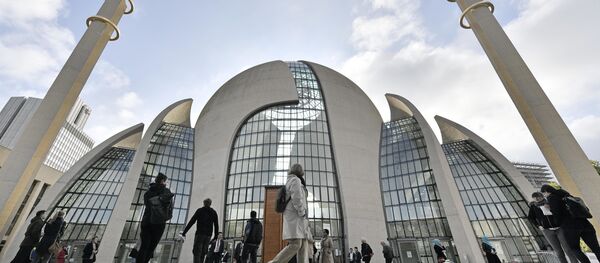After long and heated debates in the country, a new association to educate imams, funded with an investment by Germany’s Interior Ministry, is to start working on 21 November. The pilot project is set to be launched in Lower Saxony.
As its State Ministry for Science and Culture told the German outlet Deutsche Welle, the plan includes the "establishment of a registered association in cooperation with Muslim organisations and mosque communities that are interested" with involving Islamic theology experts. Their project is said to be able to "function as a model”.
The outlet also cites Professor Rauf Ceylan from Osnabrück University, who authored a "road map" for the training programme, as saying that the project would be "putting a foot in the door”. Although he warned against having "high expectations”, he noted that "we just need to start, and I think when the quality shows itself, in the long run it will gain acceptance”.
Although Islamic theology has been taught at several academic institutions across Germany, its graduates could not work as imams as reading of the Koran, prayers, and practice needed special training. The gap was filled by other organisations.
As Green lawmaker Filiz Polat, whose party "had long been asking for" such a programme, has told DW that the move was prompted by the expansion of the Turkish-Islamic Union for Religious Affairs (DITIB), which has about 900 affiliated mosques.
This organisation, alleged to have close ties with Ankara and Recep Tayyip Erdogan’s government, has trained and funded the majority of imams, leading the nearly 4.5-million-strong Muslim community in Germany.
The German authorities have been pressured to deal with it for years but the question of funding has remained a hurdle as the country’s Constitution does not allow the state to interfere or influence religious affairs. The state, however, managed to safeguard its neutrality by launching an independent association in which the Central Council of Muslims in Germany (ZMD) will take part. Plans for start-up investment have been confirmed by the Interior Ministry.
"We can't just always complain that there are foreign imams”, ZMD chairman Aiman Mazyek said, calling the decision "a positive development, but it should have been introduced decades ago”.



